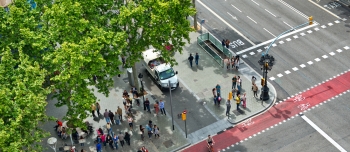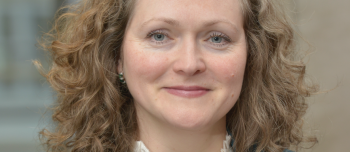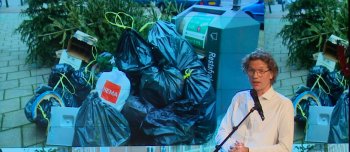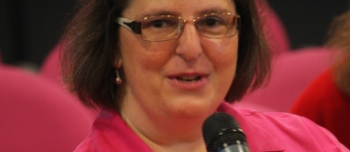CLOSER CITIES aims to create a bridge between urban science and urban practice. By collecting cases on urban practice, analysing them on the shoulders of urban science and sharing research outcomes, urban knowledge becomes shareable. In the ‘5 questions’ series, we ask scientists to briefly reflect on their research and the shareability of their insights and projects.
1. What is the main focus of your research (topic, theme, region)?
My research focuses on what I call ‘data empowerment,’ which is currently in a stage of co-creatively exploring how citizens and local entrepreneurs could be actively engaged in processes of urban datafiction (smart cities; big data).
2. Can you give a brief description of your research?
For this research we developed the so-called Data Empowerment Design Studio - a series of design-driven workshops in which researchers and designers support citizens and local entrepreneurs to develop products or services concerning a specific urban challenge (last mile logistics; circular economy; participatory democracy; open data) that contribute to their needs and that generate value for their neighbourhoods.
3. How much influence does ‘local context’ have in your field of work? Can results or solutions from your research be shared with other regions easily?
The local context is key in our work, as we believe that societal and technological developments have specific impact in specific local contexts. This makes that it takes specific local knowledge and commitment to address and tackle specific local challenges. One can always learn and get inspired from results and solutions from other regions, as long as one does not aspire to copy or implement them elsewhere blindly. What can be shared with other regions, though, is the design-driven exploration on how to engage citizens in datafiction processes.
4. What are the main lessons learned that can be used by urban initiatives?
As we experienced that the subjects and developments we touch upon imply systemic changes, we concluded (at least in the project on last mile logistics) that we should not leave citizens’ empowerment with regard to these exclusively to bottom-up activism. We consider it crucial to work with social investors and institutional parties, which can provide citizens and local entrepreneurs space, rules, time and money to develop local and sustainable products and services.
5. How do you think cities can implement these lessons?
I hope other cities could use these methods in order to conduct participatory research to contribute to data empowerment in their specific local contexts.











